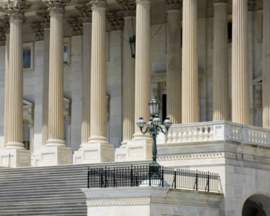
Virginia Guardianship Law

Why is a Virginia Guardianship Important? Guardianship legally affirms an individual as a caretaker for a child with out-of-home care while maintaining the child’s parents’ rights. In Virginia, guardians and conservators are appointed by the state to protect incapacitated persons (individual who cannot make decisions with aid). Only circuit judges in the state of Virginia may decide that an individual is incapacitated; only circuit judges may affirm a Virginia guardianship. A Virginia guardianship’s authority is somewhat broad, for it can be limited to rendering specific decisions. Typically a Virginia Guardianship will render health care and personal decisions but also may be responsible for other decisions that are social in nature (IE visitation issues). The extent of a Virginia guardian’s authority is set forth in a circuit judge’s order and in the Virginia code. The Establishment of a Virginia guardianship removes an individual’s right to make decisions for him/herself. As a result, a Virginia guardianship is typically believed to be a last resort option. Virginia guardianships should only be used when are no less invasive or restrictive alternatives that will protect the interest of the incapacitated party. The primary reason to have a guardianship in place to streamline the delivery of medical treatment required by a disabled person. Medical professionals and medical facilities may refuse to perform needed—but non-emergency procedures—on disabled patients without legally authorized consent. Guardianship bypasses this impediment by providing said consent in an efficient manner. Types of Virginia Guardianship: When a Virginia circuit judge decides that a Virginia guardianship is necessary for an incapacitated party, the judge possesses significant flexibility in determining what authority to give the conservatory or guardian. The circuit judge may render specific provisions to preserve as much of the disabled party’s independence as possible. Listed below are the different types of Virginia guardianships: Full Virginia Guardianship: • A Virginia Guardianship—unless specifically appointed by a court order—provides full decision-making responsibility for all personal and personal care decisions for the disabled party. Full Virginia Guardianship, again, is only applied as a last resort means—there are no less restrictive methods that provide needed protection. Full VA guardianships are required to report to the local department of social services regarding the care provided to the incapacitated adult. Said reports are prepared on court documents issued by the Office of Executive Secretary of The Virginia Supreme Court and delivered to the Virginia guardian by the Clerk of the Circuit Court Limited Virginia Guardianship: • These types of Virginia Guardianships are used when decisional aid is only required for specific tasks—these forms of Virginia guardianships do not require the guardian to make all decisions for the incapacitated. For instance, an incapacitated adult may be able to decide certain things as it pertain to their daily life, but need help making health care decisions. In this instance, a judge will appoint a limited VA guardianship to make health care decisions, leaving the incapacitated free to render all other decisions. These forms of VA guardianships possess the same responsibility as full guardians to report annually to the local department of social services concerning the care provided to the disabled or incapacitated party. Standby Virginia Guardianship: • These types of VA guardianships are people who become the guardian of the incapacitated person when the individual is currently responsible for providing care dies. This type of Virginia guardianship allows parents to plan for the care of a disabled child after they die. This form of a VA guardianship will not assume any duties until the death of both parents. Frequently Asked Questions Pertaining to Virginia Guardianships: How Will I know if a Person needs a Guardian or a Conservator? • Virginia guardianships are required for people: o VA guardianship is required for people with functional capacity impediments; these problems obstruct the individual from caring for their own basic needs o VA guardianship is required for people who are at risk of substantial harm o VA guardianship is required for people who have no family members or other people in their lives available to assume responsibility for helping them What are the Primary Duties of a Virginia Guardianship? • A Virginia Guardianship places the following responsibilities on the guardian: make decisions concerning how the disabled or incapacitated person lives, including decisions regarding medical treatment, social activity and residence issues.



















